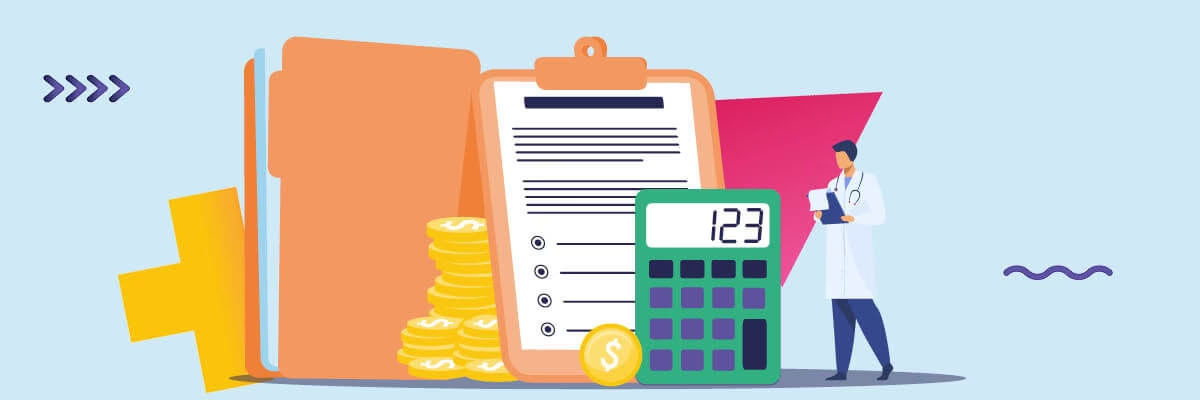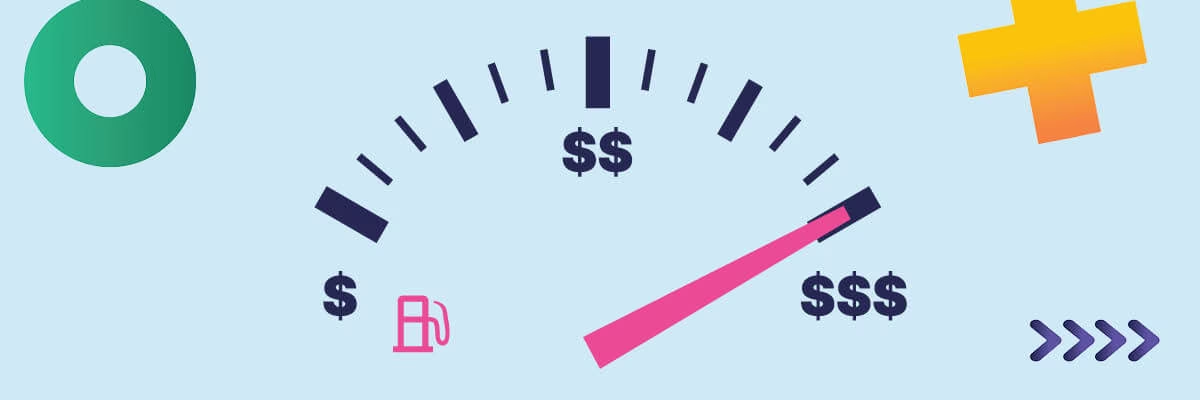Unfortunately for sole traders, claiming tax deductions isn’t simple, straightforward, or intuitive.
The rules around business expenses are (necessarily) complex, meaning that not every purchase you make for work is tax deductible.
The good news is that you’re also potentially not claiming everything you can claim. That’s why we created this guide, to help our self-employed locum doctors navigate the ATO’s tax deduction system.
To start with, ATO has three golden rules you can use as a test for if a business expense is an eligible tax deduction:
- The expense must have been for your business, not for personal use.
- If the expense is for a mix of business and personal use, you can only claim the portion that is used for your business.
- You must have records to prove it.
On top of these three rules, there are a few other guidelines to keep in mind:
- You can only claim what you’ve paid for out of pocket. If you have an employer, and they reimburse you for an expense, it’s no longer claimable.
- The exception is allowances. If you receive an allowance for an expense (eg. travel), and you spend it on travel, you can claim it as an expense
To put all this into practice, we’ve created a cheat sheet of our most queried and most claimed doctor-related business expenses, along with some notes on why or not the expense was/wasn’t accepted.
Key:
- ✅ - straightforward and claimable
- ⚠️ - claimable if certain conditions are met
- ❌ - not claimable at all. Sorry folks.
Can claim:
- Professional Fees and insurance
- Tools and equipment
- Phone and internet expenses
- Protective items
- Seminars, conferences, and training courses
- Travel expenses
Might be able to claim:
Can’t claim:

Expenses doctors and locums can claim
1. Professional Fees and insurance ✅
All professional fees and insurance payments are claimable including your:
- Agency fees
- Agency commission
- Annual practising certificate fees
- Australian Health Practitioner Regulation Agency (AHPRA) registration
- Insurance - income protection and professional indemnity
- Any other specialist registrations
- Journal subscriptions and publications
Make sure you claim them all!
2. Tools and equipment ✅
Any equipment you need in order to do your job (for example, a mobile phone, or a stethoscope) is tax deductible.
But remember: if the equipment is for both business and personal use, you can only claim the business portion of the cost.
3. Phone and internet expenses ✅
You can claim the work-related percentage of phone and internet expenses, including:
- your phone itself (including its decline in value!)
- your data plan
- internet expenses
4. Protective items ✅
Protective items like:
- gloves
- hand sanitiser
- PPE
- safety glasses
- lab coats
- masks
are all claimable, but only if your hospital or agency doesn’t reimburse you.
5. Seminars, conferences, and training courses ✅
Like with education, costs for seminars, conferences, and professional development training that will help you get ahead in your current role are tax deductible.
If you’re required to stay away from home for more than a day, your travel expenses, accommodation, and meals, these are all also tax deductible.
But in order to be eligible, the whole work trip must be 100% work related. You can’t tack on an extended vacation after travelling to a conference, and then expense the entire trip (unfortunately). In this case, only direct costs, like the conference registration fees, will be tax deductible.
Purani is a doctor from Melbourne who struggles to keep on top of her finances.
After miscalculating her taxes and incurring a hefty fine from the ATO, her locum recommends she attend a free basic bookkeeping seminar for health professionals. Purani decides to go, driving three hours to the seminar's location. The seminar finishes late at night, so Purani stays in a motel, before driving back the next day.
Unfortunately, she is unable to claim any costs for the trip because the seminar didn't directly relate to her ability to do her job.
She did, however, sign up for Hnry, and never missed another tax payment again.
6. Travel expenses ✅
You can claim any costs associated with an overnight trip for work.
If you receive an allowance for overnight costs, and this allowance is part of your assessable income, you can still claim these expenses if you can show:
- You were away overnight
- You spent money while away
- The trip directly relates to earning income
- How you worked out your claim
Expenses doctors may be able to claim
1. Training, self-education, and study ⚠️
You can claim all training, self-education, and study expenses if your study relates directly to your current role.
In order for these expenses to be eligible, your education needs to:
- Maintain or improve the specific skills and knowledge you need for your current duties
- Be likely to result in an increase in income from your current work
You can’t claim a deduction for a course that will help you get a new job, or if it’s only tangentially related to your line of work. Personal development courses unfortunately don’t cut the mustard with the ATO.
2. Driver’s licence ⚠️
While you can’t claim the cost of getting or renewing your regular driver’s licence, you can claim the costs for any additional special licences or conditions you need for work.
3. Clothing and laundry ⚠️
This one’s a bit tricky. The ATO only allows deductions for:
- occupation-specific clothing (eg. scrubs),
- protective clothing (e.g. non-slip shoes),
- compulsory uniforms.
Even if you only use certain clothes for work, if they could feasibly be worn outside a work context, you won’t be allowed to claim them as a business expense.
If your work clothes ARE tax deductible however, you can also claim any related laundry expenses. This includes:
- Dry cleaning and repairs.
- $1 for every load containing just your work clothes.
- $0.50 for every load containing a mix of work and personal garments.
If your laundry expenses (minus dry cleaning) are less than $150, you don’t need to keep records to prove your costs.
You will however need to be able to show how you calculated and worked out your claim.
4. Meals ⚠️
- ❌ You can’t claim the cost of food, drinks, and snacks consumed during normal work hours, even if you receive an allowance. These are considered private expenses.
- ✅ You CAN claim meals bought when working overtime if you receive an overtime meal allowance, and this allowance is included in your assessable income.
- 📖 Your assessable income is the income you pay taxes on. For more information, read our article on how taxes work.
- ✅ Similarly, you can also claim meals you buy when travelling overnight on a work trip.
5. Car expenses ⚠️
Car expenses are tax deductible, but only in specific circumstances:
- ❌ You can’t claim the cost of normal trips between home and work, even if you work outside of usual business hours. This includes any taxi or public transport fares; the ATO considers your regular commute a private expense.
- There are limited exceptions to this rule. For example, if you have no fixed place of employment and you continually travel from one work site to another.
- ❌ You can’t claim any tolls you pay driving between home and your regular place of work.
- ❌ You can’t claim parking costs for parking at or near your regular place of work.
- ✅ You can claim the cost of driving from one job to another during the working day.
- ✅ You can claim the cost of driving between alternate work locations for the same employer eg. if you transport a patient between locations.
- ✅ You can claim the cost of tolls and parking on work related trips.
Claiming car expenses
To claim the cost of car expenses, there are two methods you can use:
- The logbook method.
- The cents per kilometre method.
The logbook method
The logbook method is used to calculate the business-use percentage of the expenses of your vehicle. Expenses include fuel, maintenance, and registrations.
To work out your business-use percentage, you’ll need to keep a logbook for a minimum of 12 continuous weeks. Note the income year you create the logbook, and then for each trip you take, record:
- the date the journey began, and the date it ended
- the car’s odometer reading at the start and end of the journey
- how many kilometres the car travelled on the journey
- why the journey was made (eg. for business or personal reasons)
Once your logbook is complete, you can work out the percentage you use your car for work, and claim that percentage of all running expenses. Unless your circumstances change significantly (eg. you change jobs), your logbook will be valid for five years.
You can claim fuel and oil costs based on your actual receipts, or you can estimate costs based on your odometer readings. For all other expenses, you’ll need written proof (eg. WoF, maintenance etc).
💡 If the cost of fuel skyrockets unexpectedly, using the logbook method means your fuel claims will keep pace with the pump price. It might be worth the admin if you use a lot of petrol for work.

Cents per kilometre method
From 1 July 2024, you can claim $0.88 per kilometre for every tax deductible trip you take, up to a maximum of 5,000km (or $4,400). You won’t need to keep a logbook, but the ATO might ask you to show them how you calculated your business kilometres.
It’s far easier, but less accurate than using a logbook.
| Logbook method | Cents per kilometre method |
|---|---|
| Pros: Potentially a bigger deduction, if your vehicle expenses are high. | Pros: Low admin |
| Cons: More admin. | Cons: Potentially a lower deduction, if your vehicle expenses are high. |
Expenses doctors can’t claim
1. Entertainment and social functions ❌
Entertainment and social event costs are considered personal expenses, even if they’re related to work. Even if they’re required for work.
For example, it’s (unfortunately) not tax-deductible to attend a networking event.

2. Glasses ❌
It doesn’t matter what the context is – for doctors, glasses are a personal expense.
3. Grooming ❌
Your agency or recruiter might require certain levels of presentation, but the ATO definitely doesn’t. Grooming costs are considered personal expenses.
4. Child care ❌
Even if you aren’t able to work without paying for childcare, childcare is considered a personal expense. It’s never claimable (sorry).
Claim tax deductions with Hnry
We may be biased, but we reckon the best way for self-employed doctors to maximise their tax deductions (cost-effectively and legally!) is to use Hnry.
Hnry is an award-winning app that’s helping health professionals spend less time on financial admin, and more time doing what they love (unless what they love is financial admin).
For just 1% of your self-employed income, capped at $1,500 a year, Hnry will calculate and pay all your taxes, levies and whatnot for you, including:
We’ll even lodge your annual tax return for you, at no additional cost.
Raising expenses through our app is as simple as taking a photo of your receipt and inputting a few extra details. From there, our accountants will review and claim your tax deductions straight away, so you get the tax relief back in your pocket in real time (rather than having to wait until the end of the financial year).
Share on:
